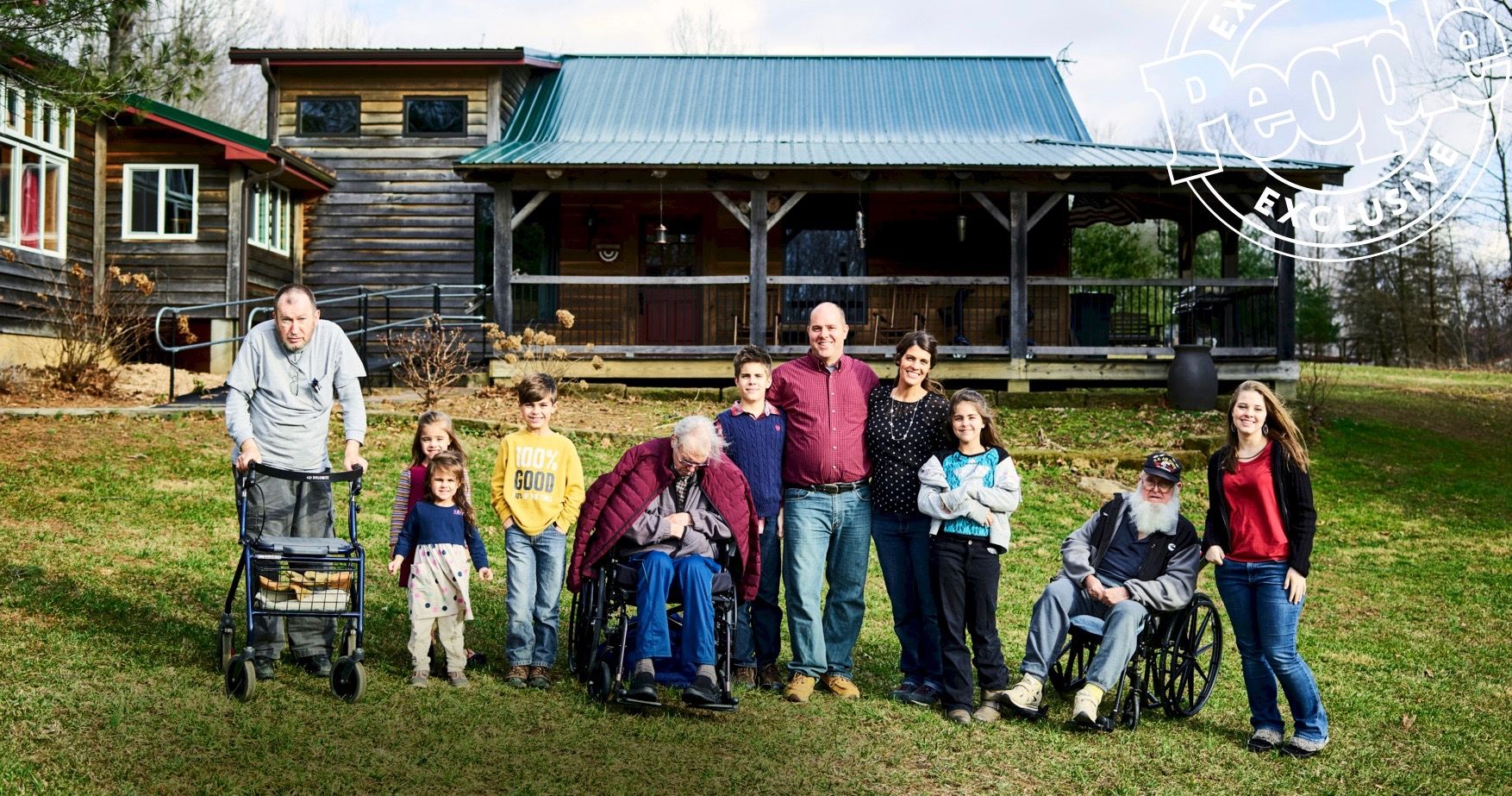The US Department of Veteran Affairs Medical Foster Home Program has allowed 1,000 veterans to live with families rather than in a nursing home. In Greenville, Indiana, one family has welcomed three veterans into their home. The family, which includes Sarah and Troy Rufing, along with their kids — Hannah, 14, Matthew, 11, Sophie, 10, Sam, 7, Catherine, 5, and Clover, 3 — decided to open their home to three former servicemen with nowhere to go.
The vets – Army Sgt. William Sutton, 53, Sgt. Charles Hughes, 87, and Army Cpl. Robert Schellenberg, 89 –currently live in a three-bedroom wing that the family added onto their home. Troy, 44, and Sarah, 41, are both caregivers and help the men bathe and dress, as well as complete other household tasks. The family are among 700 participants in 44 states that host disabled veterans, many of whom have serious chronic conditions.
“Veterans living in this type of setting tend to thrive and often have fewer hospitalizations than those who are living alone or in institutional care,” says VA program coordinator Lori Paris. “This environment really enriches the lives of both the veterans and the remarkable caregivers who accept these veterans into their homes.”
The men also receive at-home visits from VA health-care professionals, including doctors, occupational therapists and psychologists, though their primary care is provided by their host family. The Rufings in turn receive a monthly stipend of $2,400 per veteran. The caregivers are expected to be on call 24 hours a day to assist the men with meals, laundry and household chores.
“It’s like having your grandparents live with you,” Sarah told PEOPLE. “We’re one big family.” The veterans say they feel at home with their new “extended” family. “They take care of us,” Hughes says. “They’re all just so sweet and nice.”
“This place has become home. I feel very grateful,” Sutton adds. Schellenberg, who suffers from dementia, requires the most care. The Rufings took an interest in the program after Troy’s mother, Ruth, 76, joined the program in 2003. She has since hosted 16 veterans.
“I saw how satisfying it was for everyone,” says Troy, whose father was in the military. The Rufings have hosted five veterans so far – two of whom have passed away.
Sutton, who was welcomed into the home in 2015, had lost both legs to complications stemming from diabetes. In the beginning, “he was closed off and didn’t really leave his room,” Sarah says. “But today he’s walking — and not slowing down. Every day he takes a 10-minute walk to the mailbox and says that ‘this place has really become home.’"
The experience has also been a teaching experience for the Rufing’s children. “I’ve learned to be very patient,” says Hannah. “It’s given me perspective a lot of people my age don’t have. They’re like our blood relatives.”
Hannah likes bird-watching with Hughes, who is wheelchair bound after a car accident two years ago. In the evening, the family watches television together. “That’s the whole thing about this program,” says Troy. “It’s a family, and veterans feel like they’re at home, like they belong somewhere. We feel like we were meant to do this. And we plan to help for as long as we possibly can.”
RELATED: Helsinki Effectively Eradicates Homelessness On City Streets
Currently, over 82,000 veterans live in nursing homes, while another 38,000 are battling homelessness. For more information on the US Department of Veterans Affairs Medical Foster Home Program, contact your local VA medical center.

